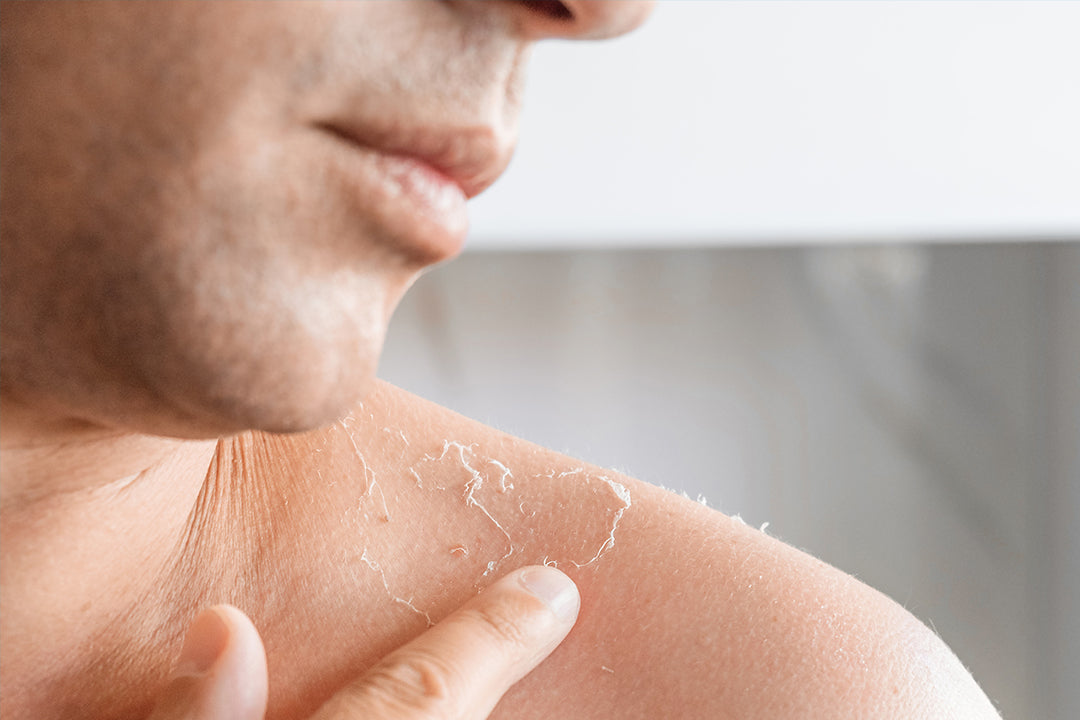The saying "you are what you eat" holds more truth than you might think, especially when it comes to your skin. The connection between gut health and skin appearance, often referred to as the gut-skin axis, has gained increasing attention in recent years. An unhealthy gut can manifest in various skin issues, from acne and rosacea to eczema and dullness. In this post, we’ll explore the relationship between your digestive health and your skin, and how nurturing your gut can lead to a clearer, more radiant complexion.
What is the Gut-Skin Axis?
The gut-skin axis refers to the complex, two-way communication between the gastrointestinal tract and the skin. This connection is mediated by the immune system, hormones, and the diverse population of bacteria that live in the gut, known as the gut microbiome. When your gut is in a state of balance—meaning that the beneficial bacteria outweigh the harmful ones—it helps regulate inflammation, digestion, and the immune response. However, when this balance is disrupted, it can lead to systemic inflammation and a range of skin issues.
How Gut Health Affects Your Skin
1. Inflammation and Skin Conditions:
-
What Happens: An imbalanced gut microbiome can trigger systemic inflammation, which may exacerbate inflammatory skin conditions like acne, rosacea, eczema, and psoriasis. When the gut is inflamed, it can produce substances that promote inflammation throughout the body, including the skin.
-
Skin Impact: Conditions like acne and rosacea are often linked to inflammation, which can be aggravated by poor gut health.
2. Nutrient Absorption and Skin Appearance:
-
What Happens: A healthy gut is essential for the proper absorption of nutrients, including vitamins, minerals, and antioxidants that are crucial for skin health. If your gut isn’t functioning properly, it can hinder the absorption of these nutrients, leading to dull, lackluster skin.
-
Skin Impact: Poor nutrient absorption can result in a lack of essential vitamins like A, C, and E, which are vital for maintaining a healthy, glowing complexion.
3. Hormonal Balance:
-
What Happens: The gut plays a role in regulating hormones, including those that influence skin conditions like acne. An imbalanced gut can disrupt hormone levels, leading to an increase in sebum production and, consequently, breakouts.
-
Skin Impact: Hormonal acne, often characterized by breakouts around the jawline and chin, can be linked to gut imbalances that disrupt hormone regulation.
4. Stress and the Gut-Skin Connection:
-
What Happens: Stress impacts both the gut and the skin, often exacerbating skin conditions. Stress can lead to gut dysbiosis, a state where harmful bacteria outnumber beneficial ones, which can then trigger or worsen skin issues.
-
Skin Impact: Stress-related flare-ups, such as eczema or psoriasis, can be tied to the stress-gut-skin axis.
How to Support Gut Health for Better Skin
1. Incorporate Probiotics:
-
Why It Helps: Probiotics are beneficial bacteria that help balance the gut microbiome. They can be found in fermented foods like yogurt, kefir, sauerkraut, and kimchi, as well as in probiotic supplements.
-
Tip: Choose a probiotic with a diverse range of strains to support overall gut health.
2. Eat a Fiber-Rich Diet:
-
Why It Helps: Fiber acts as food for beneficial gut bacteria, helping them thrive and maintain a healthy balance. High-fiber foods include fruits, vegetables, whole grains, and legumes.
-
Tip: Gradually increase your fiber intake to avoid digestive discomfort and drink plenty of water to aid digestion.
3. Avoid Processed Foods and Sugars:
-
Why It Helps: Processed foods and refined sugars can promote the growth of harmful bacteria in the gut and contribute to inflammation.
-
Tip: Focus on whole, unprocessed foods to support both your gut and skin health.
4. Stay Hydrated:
-
Why It Helps: Adequate hydration is crucial for maintaining a healthy gut lining and supporting digestion. Proper hydration helps flush out toxins and supports overall skin health.
-
Tip: Aim for at least eight glasses of water a day, and more if you’re active or live in a hot climate.
5. Manage Stress:
-
Why It Helps: Stress can disrupt the balance of your gut microbiome and contribute to skin flare-ups. Incorporating stress-management techniques like meditation, yoga, or deep breathing exercises can support gut health and, in turn, benefit your skin.
-
Tip: Make time for relaxation and self-care daily, even if it’s just for a few minutes.
The gut-skin axis highlights the powerful connection between your digestive health and your skin’s appearance. By nurturing your gut with a balanced diet, probiotics, and healthy lifestyle choices, you can support your skin from the inside out. Combine these internal changes with a targeted skincare routine from QRxLabs to achieve a healthier, more radiant complexion.





